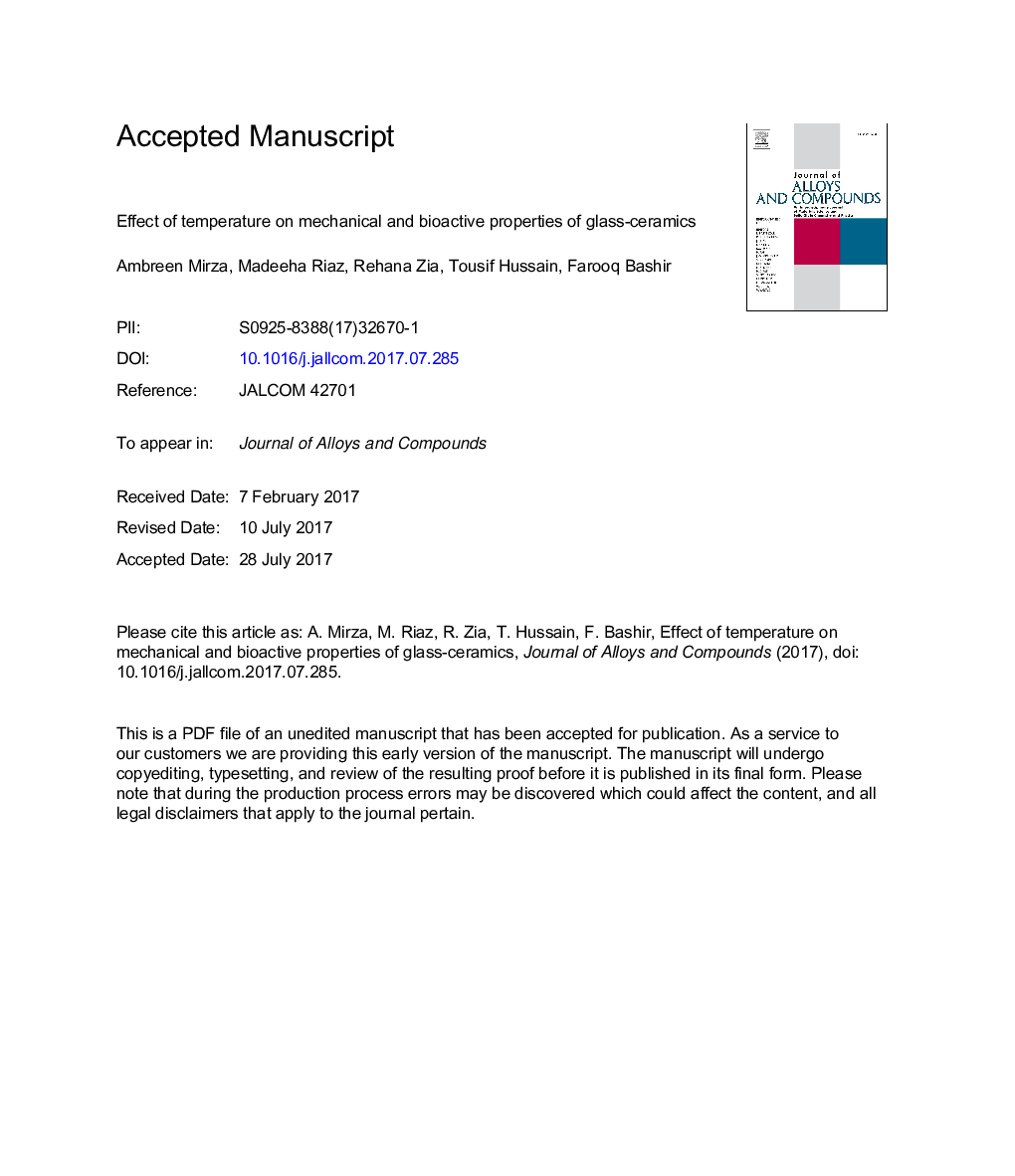| Article ID | Journal | Published Year | Pages | File Type |
|---|---|---|---|---|
| 5459356 | Journal of Alloys and Compounds | 2017 | 12 Pages |
Abstract
Melt-derived glass ceramics were prepared having the following chemical composition 33SiO2-21CaO-32.5Na2O-12P2O5-1.5MgO (mol %). Samples were sintered at three different temperatures (750, 800, and 850 °C). Thermal, structural, and bioactivity analyses were carried out using TGA-DSC, XRD, and in vitro immersion tests, respectively. XRD results indicated that CaSiO3 was the major phase while Na2Ca2Si3O9 was the minor phase in a glass matrix. The crystallite size and degree of crystallization increased with sintering temperature. Additionally, SEM images showed grain growth and reduction of pores with increasing sintering temperature. The bioactivity of the specimens were assessed by XRD; all specimens exhibited hydroxyapatite phase on their surfaces after immersion in a simulated body fluid, indicating the bioactive nature of the material. Further, the sample sintered at 750 °C was observed to be more bioactive as indicated by crystallization of Ca10(PO4)6(OH)2 on its surface. These results indicate that sintering at high temperature increases the crystallinity, microhardness and chemical stability of this bioactive glass ceramic.
Related Topics
Physical Sciences and Engineering
Materials Science
Metals and Alloys
Authors
Ambreen Mirza, Madeeha Riaz, Rehana Zia, Tousif Hussain, Farooq Bashir,
